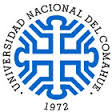Este artículo parte de los resultados de la investigación realizada durante los años 2005 a 2009 que tenía como eje analizar la participación de las Juntas Vecinales de la ciudad de Viedma en la gestión municipal y la capacidad de incidencia en las políticas locales. A partir de la aplicación de una encuesta a los integrantes de los Juntas Vecinales se indagó en aspectos tales como sexo, edad, antigüedad de residencia en la ciudad y en el barrio, nivel de estudios, composición del grupo familiar, actividad laboral, nivel de ingresos, antigüedad en la gestión vecinal, motivación para participar, tiempo dedicado al trabajo en la Junta, forma de convocatoria y grado de participación de los demás integrantes de la organización y de los vecinos en general y proyectos impulsados entre los más significativos. El análisis se realizó en dos momentos, el primero con las 160 encuestas realizadas a los diferentes cargos (Presidente, Vicepresidente, Secretario, Tesorero, Vocal y Revisor de Cuentas) y el segundo momento del análisis se enfocó sólo en los Presidentes por considerar que quienes ocupan estos cargos presentan mayor compromiso y actividad en sus respectivas Juntas Vecinales. El producto de ambos niveles de análisis fue la caracterización del perfil de los integrantes de estas organizaciones comunitarias. Asimismo, se trabajó con la técnica de grupos focales con la finalidad de indagar aspectos tales como las percepciones acerca de la participación de los vecinos y demás integrantes de la Junta Vecinal y los aportes que éstas realizan al Desarrollo Local.
This article departs from the results of the investigation realized during the year 2005 to 2009 that it had as axis analyze the participation of the Juntas Vecinales of Viedma's city in the municipal management and the capacity of incident in the local policies. From the application of a survey of you join the Juntas Vecinales members it was investigated in such aspects as sex, age, exage of residence in the city and in the neighborhood, level of studies, composition of the familiar group, labor activity, level of income, exage in the local management, motivation to take part, time dedicated to the work in the Junta, form of summons and degree of participation of other members of the organization and of the neighbors in general and projects stimulated between the most significant.The analysis was realized in two moments, the first one by 160 surveys realized to the different charges (President, Vice-president, Secretary, Treasurer, Member and Account reviser) and the second moment of the analysis focused only in the Presidents for thinking that those who occupy these charges present major commitment and activity in his respective Juntas Vecinales. The product of both levels of analysis was the characterization of the profile of the members of these community organizations. Likewise, one worked with the technology of focal groups with the purpose of investigating such aspects as the perceptions it brings over of the participation of the neighbors and other members of the Junta Vecinal and the contributions that these realize to the Local Development


